If you are thinking about buying a converted van for your working holiday or long road trip in New Zealand (or if you have already bought one), then it’s important to consider how you will sell it at the end of your trip. I recently spent a year living in a converted van in New Zealand during my working holiday, and based on my experience both buying and selling a van in New Zealand, I thought it was important to share this information with others who are doing the same. There are a lot of blogs out there that will tell you buying a van is the way to go in New Zealand with plenty of tips for how to do so, but there is not a lot of information out there about how difficult it can be to maintain your van and also sell it at the end.
This is where this blog post comes in. While I loved having our little van for my year in New Zealand, there are some important things about owning and selling my van that I wish I had known beforehand. Below I discuss everything I learned about selling a van in New Zealand during my working holiday.
The Nitty Gritty of Selling A Van in New Zealand
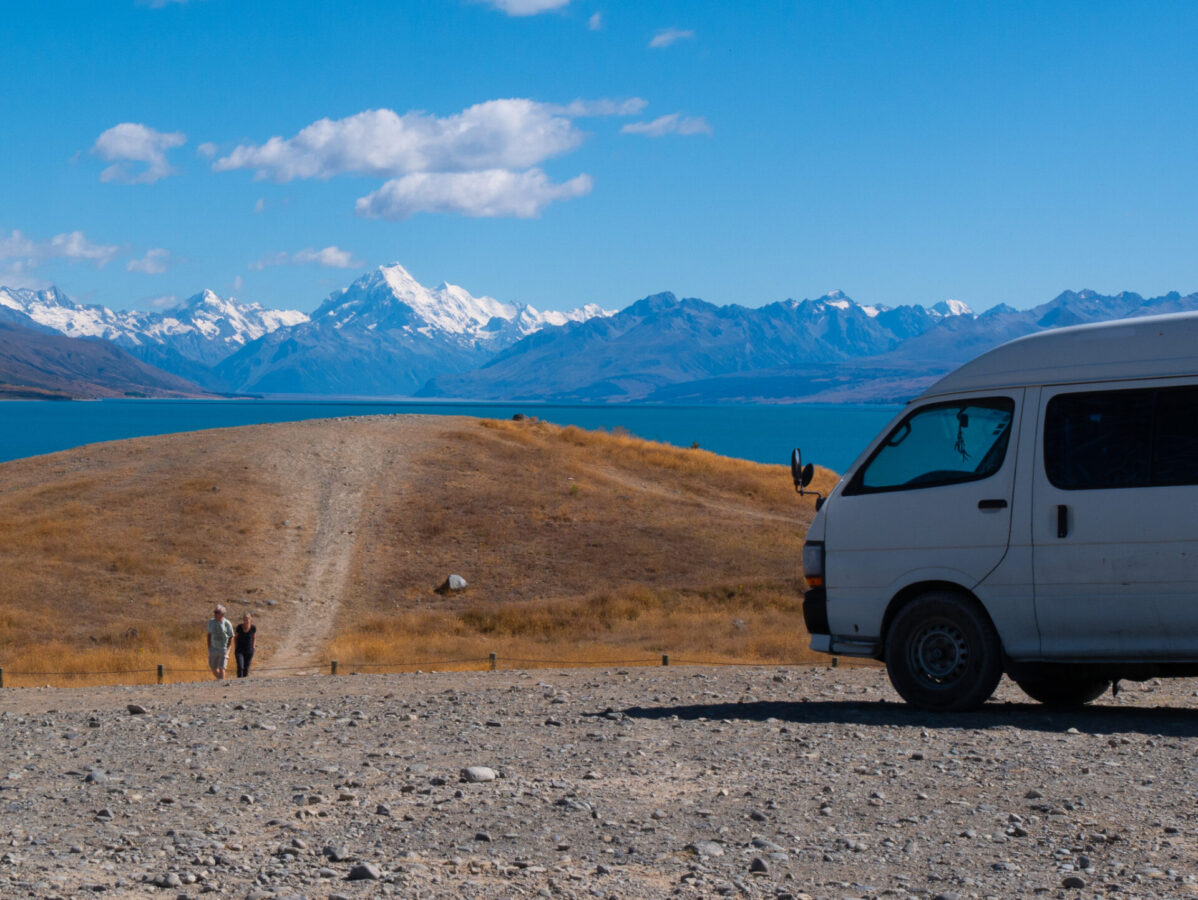
Time of Year (Market)
First thing’s first: the amount of money you will get for your van largely depends on the time of year you sell it, or whether you sell it during the buyer’s market or the seller’s market.
The buyer’s market occurs end of summer through fall in New Zealand, when there are a lot of people selling vans but not that many people buying. This is because loads of people come to New Zealand and buy a van just for the summer season and then all want to sell them at the end of the summer. However, at this time of year, there are less people coming to New Zealand and even less people looking to buy a van because not many people want to live in a van during the winter. Sellers are often forced to lower their prices during this season due to the seasonal market influence.
The seller’s market occurs in the spring and beginning of summer in New Zealand, when there are a lot of travelers looking to buy vans and thus a lot of competition. In this season, sellers are able to sell their vans for more money (at sometimes a very inflated value) because they will most likely find a buyer for it.
Where to Sell
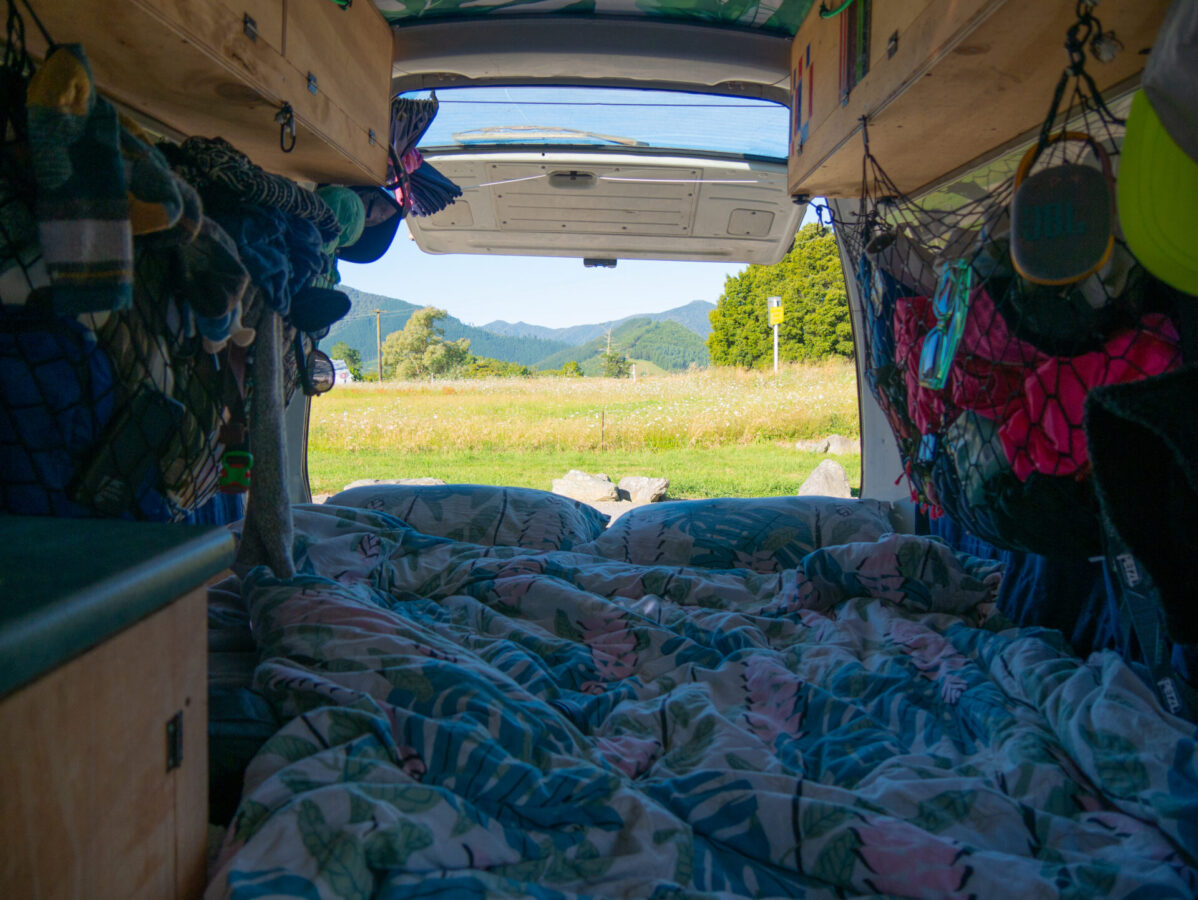
Major Cities
The best place to sell your van is in Auckland. This city has the most buyers since most people fly into Auckland, but it also has more competition than any of the other cities. Wellington, Christchurch, and Queenstown are decent places to sell as there is less competition but far fewer buyers than in Auckland.
Facebook Groups & Marketplace
Facebook is probably the most popular way for people to buy and sell their vans. When adding your van to Facebook, I recommend adding it to both Facebook Marketplace and the various Facebook groups dedicated to buying and selling vans.
Tips for FB Marketplace:
Every time you update the post, it goes through a review process and is not visible for several hours or up to a day, so keep that in mind.
Tips for FB Groups:
There are probably dozens of Facebook groups dedicated to buying and selling vans in New Zealand. There are also some dedicated to certain cities, or for lower price points. Since these are Facebook groups rather than Marketplace, every time someone posts in the group, the posts below it get buried. To ensure the best visibility, you should ideally be reposting your van every 24 hours or so. (Most of the groups prohibit more than 1 van post per 24 hours.) Once I figured out that I needed to be doing this, I was getting a lot more messages from interested buyers.
Other Internet Sites
You can also sell on TradeMe or TravelCarsNZ, but it costs money to sell on either site.
Auckland Car Fair
This occurs in Auckland every Sunday from 8 am to 1 pm. It costs $40 for sellers. This wasn’t really worth it in my opinion since there were so few buyers that came through and not a lot of cars or vans sold on the day we went. However, it can still be good for visibility and just generally a good guage on where your van stands with potential buyers.
There were quite a few predatory van buyers at the Auckland Car Fair when we went, so if you get really desperate, you may be able to sell your van (for a very low price) to one of these guys. (More on this below.)
Tips for Selling Your Van
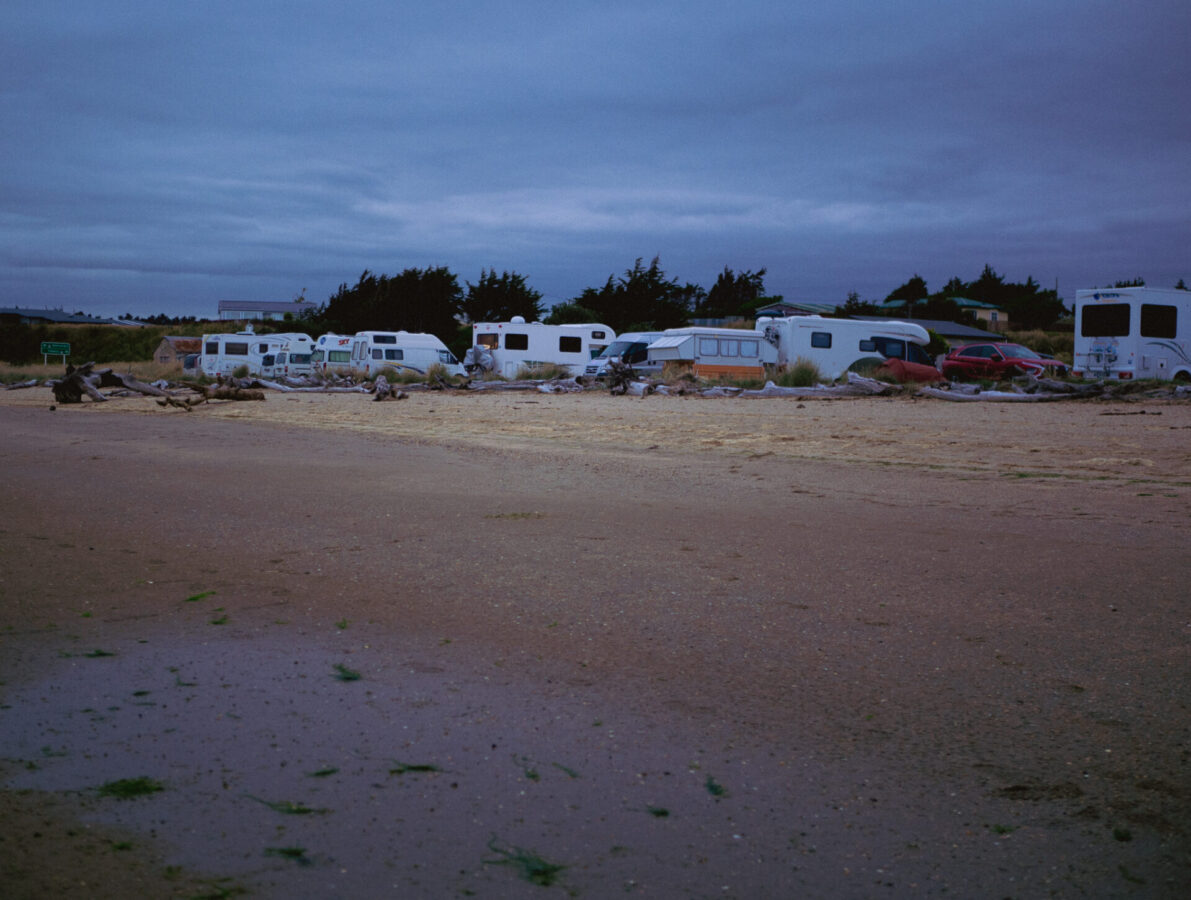
Check Out the Competition
Look at what else is on the market. See how other people are advertising their vans on Facebook. This will give you a good idea of what to include in your post. What you write in your post is important, so you should give plenty of details about the state of the van and all of the living features that it comes with.
Take Nice Photos
Aside from writing up a good explanation of your van online, taking nice photos is the other most important thing you can do to begin marketing your van. Make your van look presentable, clean, and take some great photos of the inside and out! It doesn’t hurt to include some of New Zealand’s beautiful scenery in the background.
Clean Your Van
This might seem obvious but yeah, most people want to see a clean van when they go to look at it.
Pay For a Pre-Purchase Inspection
One thing that some people do is pay for a pre-purchase inspection for any potential buyers to view. This definitely gives buyers peace of mind and confidence. We personally did not do this, as we felt this was more of a buyer responsibility but it definitely helps gaining trust from potential buyers. A pre-purchase inspection goes for around $200 from AA.
Have a Fresh WOF & Service
Technically in New Zealand it is illegal to sell a car that has a WOF more than one month old, unless specifically agreed to by the buyer. In my experience, we had gotten a WOF done at the end of February and sold our van in early May, and that wasn’t a problem for anyone. However, if your WOF is expiring within the next month or two of you selling your van, this is a good reason to get a fresh WOF. In doing so, you give potential buyers peace of mind in knowing they won’t have any expensive repairs to pay for immediately after buying the van.
Post Frequently!
Post every single day in Facebook groups. There are so many people posting that your post will get lost if you don’t do this. Don’t post links to Facebook Marketplace or change the Marketplace listing, just make new posts in various groups with the same info. You will get much greater visibility.
Give Yourself Enough Time
When you’re on a visa, it’s challenging to know when to stop your travels and start focusing on just selling your van. While you may still be able to travel a bit while you’re in selling mode, you will likely need to be centrally located (like around the Auckland area for example) so that if a buyer contacts you and wants to see it, you will be available for them. With that being said, three weeks is a good amount of time to leave at the end of your trip for selling a van.
What to Do If You Can’t Find a Buyer

Unfortunately, I have seen waaaay too many posts from desperate people in Facebook van selling groups, marking “URGENT SALE” and “Reduced Price!” on their van posts. During the buyer’s market, it seems like at least a few times a week people were posting “What do I do if I can’t sell my van?” in the groups.
This happens more often than you might think, especially for people who are selling vans in the buyer’s market and are on a time crunch (i.e. their visa is ending soon). I saw these posts when we were buying our van (buyer’s market 2023) and also when we were selling our van (buyer’s market 2024). Below is a list of things that worked for us while selling in the buyer’s market and a few other alternatives you could resort to if you get really desperate.
Lower Your Price
After we didn’t get many messages for the first week or so, we lowered our price. This helped with getting some more interest from potential buyers.
Consider Accepting Offers
In addition to lowering our price a bit, we also included “ONO” (Or Nearest Offer) and “Will accept reasonable offers” which ultimately led us to selling our van, because we negotiated to a price that was acceptable to us after someone made us an offer. This is a good way to let people know you are open to negotiating. Unfortunately, this also paves the way for scammers or people who profit off taking advantage of desperate sellers so that is something to keep in mind.
Keep Posting!
Keep posting on them Facebook groups everyyy day!
If You Get Really Desperate…
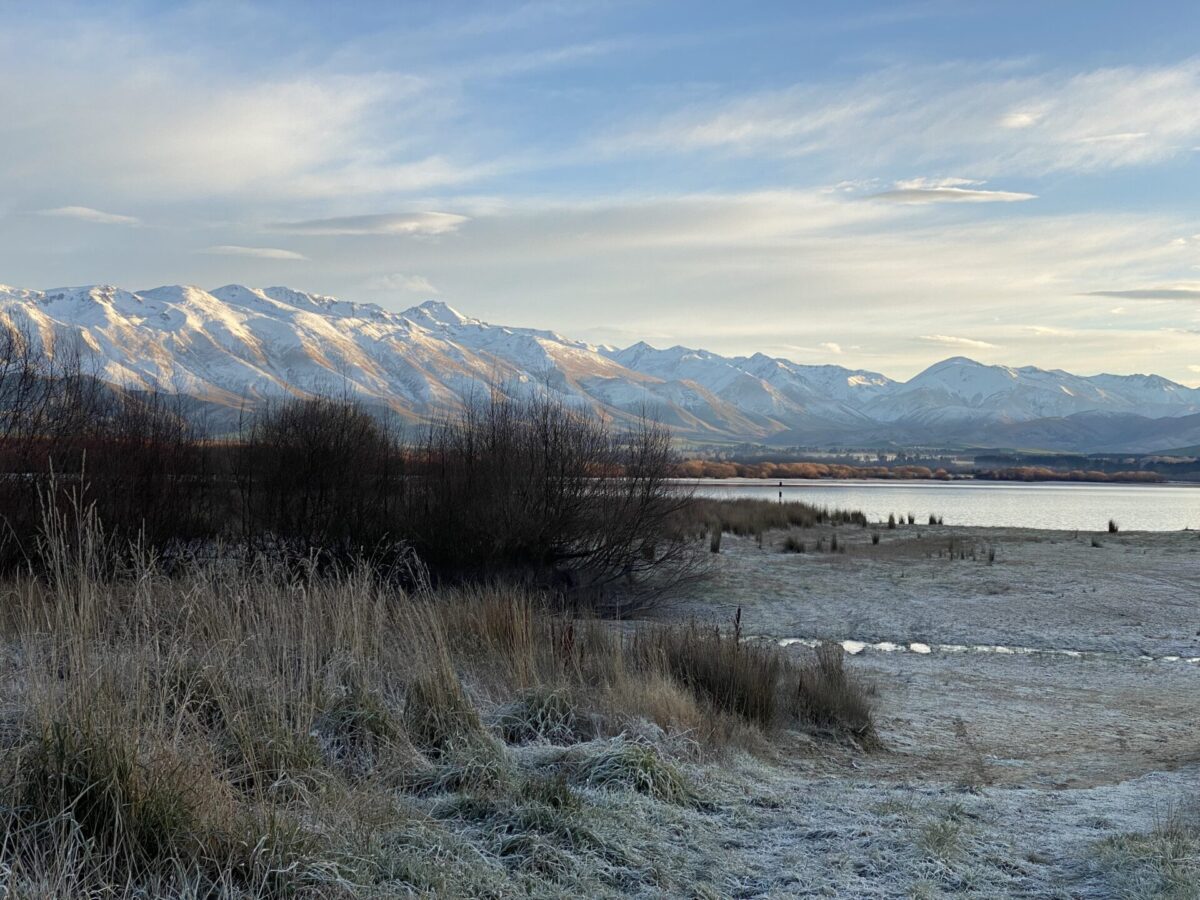
If you still can’t find a buyer after doing the above, and you are running out of time on your visa, then you have a few more options, though these aren’t ideal:
Leave & Come Back
You could leave the country and then come back to sell it. However, this might mean you have to change your flight or interrupt your future travel plans just to sell your van, and will be more expensive just with the flight costs. On the other hand, you could have yourself a sweet mini vacay in Australia or Fiji for a long weekend, and then come back to van-selling-reality with a cheap ETA visa.
Extend Your Visa
You could also pay to extend your visa, though this is quite expensive. There are no cheap options to extend for a month or so, unless you leave the country first and come back on an ETA Visa. (However, leaving and coming back will make it expensive because of the flights.)
Overstay Your Visa
While I wouldn’t breaking the law to sell your van, this is technically the cheapest option and the best way to give yourself more time. We considered doing this because in New Zealand you don’t have repercussions for overstaying unless you stay for longer than 42 days. (This is stated on the New Zealand immigration website and was also confirmed by a friend who overstayed her visa with no repercussions.)
Have a Friend Sell On Your Behalf
I’ve heard of people leaving their vans with friends who sold on their behalf. Of course, you need a reliable and trustworthy person for this task. Also, if you need the money from the sale of your van for future travels, then this option might not work.
Sell Your Van for Dirt Cheap
Lastly, and the least ideal option of all is to sell it for a much, much cheaper price – I mean like 50% or less of your asking price. There are quite a few predatory van companies that buy vans from desperate sellers for very low prices in the fall and then sell them for a much higher price in the spring/summer when the market is better. This is their business model, but it sure sucks to be the one taking the loss when you know they will sell it and make 100% or more profit on it in a few months. You can find these people at the Auckland Car Fair or any of the shady messages from Facebook buyers offering you half your asking price. TravelCarsNZ will also buy vans for a very reduced price.
There may be options like this in cities outside of Auckland, but since I bought and sold my van in Auckland, I am not sure where or how to find them.
Break Even, Profit, or Loss?

A lot of people are under the impression that they’ll be able to sell their van at the end of their trip for the same amount (or more) than they bought it for. If you’re selling at the beginning of summer when there are a lot of buyers looking for a van, the chances are that you’ll come out breaking even or even making a profit when you sell it. This of course totally depends on the market, the state of your van, how much you paid on repairs and van updates, and honestly luck.
If you’re selling at the end of summer, chances are you will take a “loss” on your van. Though this isn’t always the case, that is the general trend given that so many vans for sale are all in competition and sellers usually have to lower their price to find a buyer. So if you end up selling the van for less than you bought, then you will have some “loss” associated with these costs. Most of the time though, even with this so-called loss, you are still coming out on top with one of the cheapest accommodation options in New Zealand.
I will give you an example from my experience:
We bought our van for $11,500 NZD (plus a $200 pre-purchase inspection). Over the course of a year, we spent an additional $7,100 NZD on repairs, maintenance, registration fees, and our own personal updates to the van’s living features. At the end of the year, we ended up selling our van (in the buyer’s market) for $10,000 NZD, which was $3,000 below our initial asking price. That comes to an $8,800 loss. (Note: The cost of petrol was not factored into this number. I also wrote more about this in my post about buying a van in NZ if you want more specific details about these costs.)
This loss of $8,800 might seem like a LOT of money but when you think about it, that’s basically what we spent on a year of accommodation and transportation in New Zealand, and split between the two of us, that comes to $85 per person per week, which is pretty damn good. Obviously, these savings would be less for a single person or someone who only stayed for 6 months. Of course, this is only our individual experience and varies significantly from person to person.
We initially wanted $13,000 NZD for the van, but we had one week left and didn’t want to keep stressing out about finding a buyer. When we negotiated with a buyer to $10k, that was our absolute comfortable minimum, so we took it and ran (straight to Asia)!
Thanks for Reading & Good Luck!
I hope this post is helpful for all of you out there stressing about selling your van! Please let me know in the comments about your experience or if you have any questions. Also, don’t worry too much – you got this.


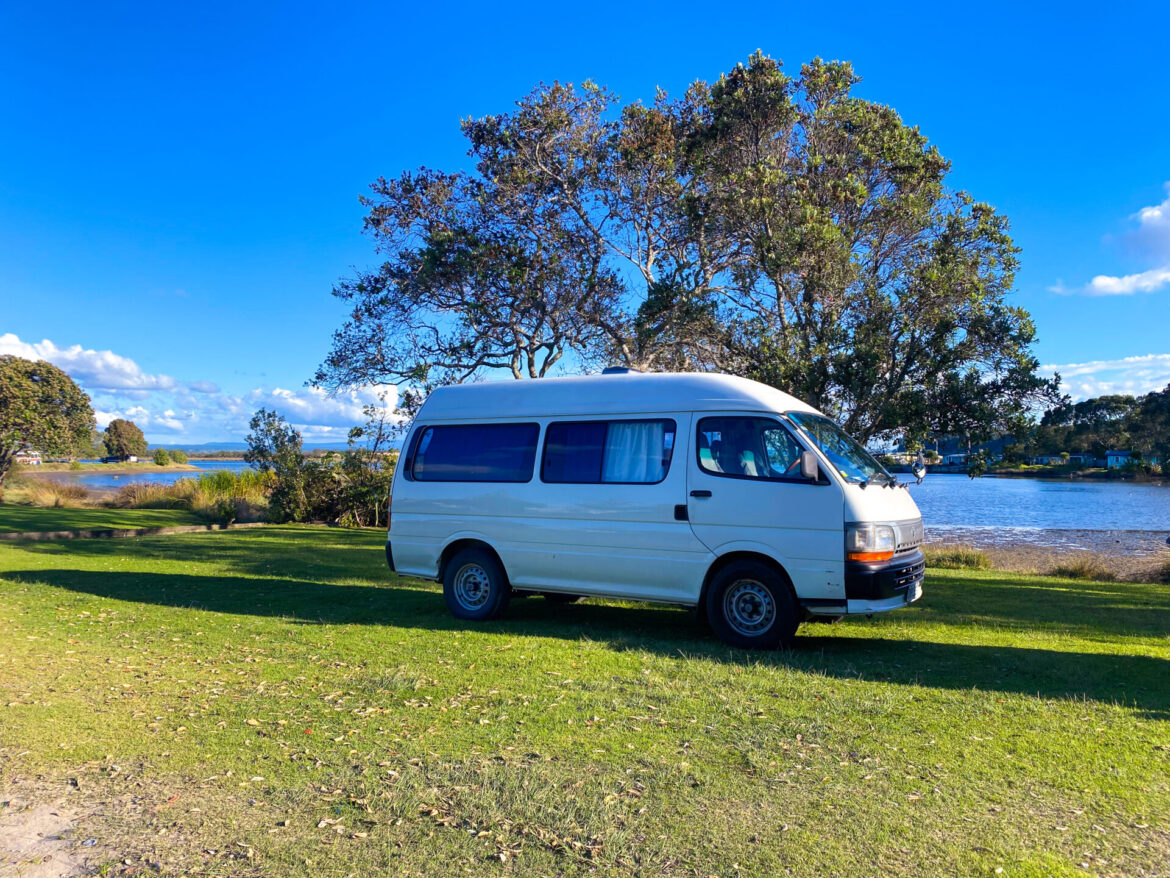
Leave a Reply